- Home
- Multimedia
- Photo Gallery
- A year after: A nation altered by the viral second wave
A year after: A nation altered by the viral second wave
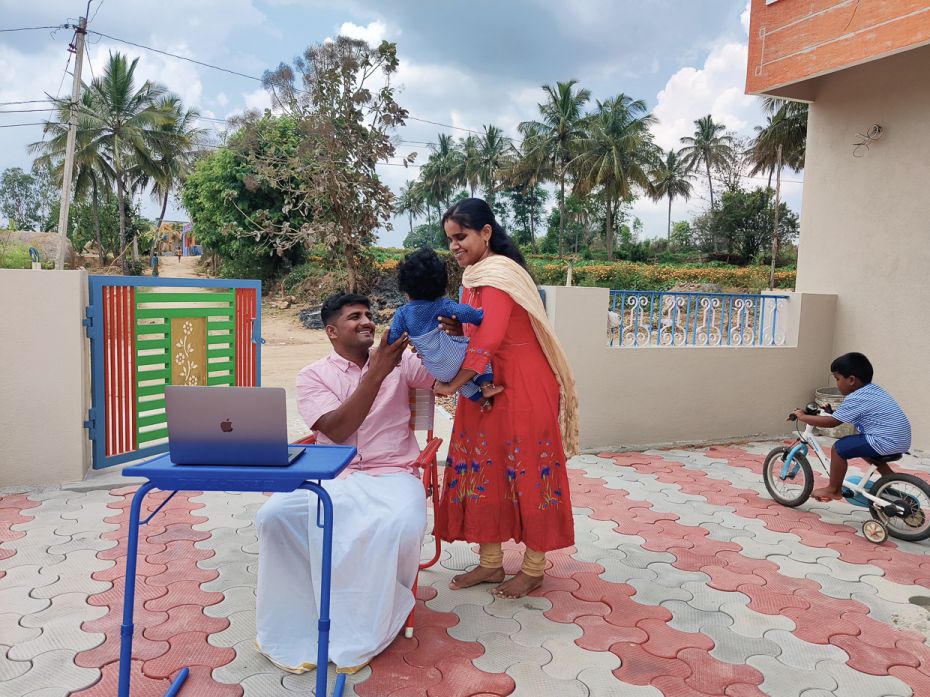
Image by : Nagarjuna Reddy
It’s been a year since Jayashankar, a frontend web developer with a major software company, moved from Bengaluru with his wife Jyothi, also a database engineer, to his village Venkatagirikota in Chittoor district, Andhra Pradesh. A year later, he lists the many "happy" changes working from home: The mobile and internet connectivity has improved, they’ve had a second child, their family grows organic vegetables and pearl millets on two acres of land, and he helped organise a local tennis-ball cricket tournament. The downside: Upgrading skills are an issue and relatives dropping by are a distraction.
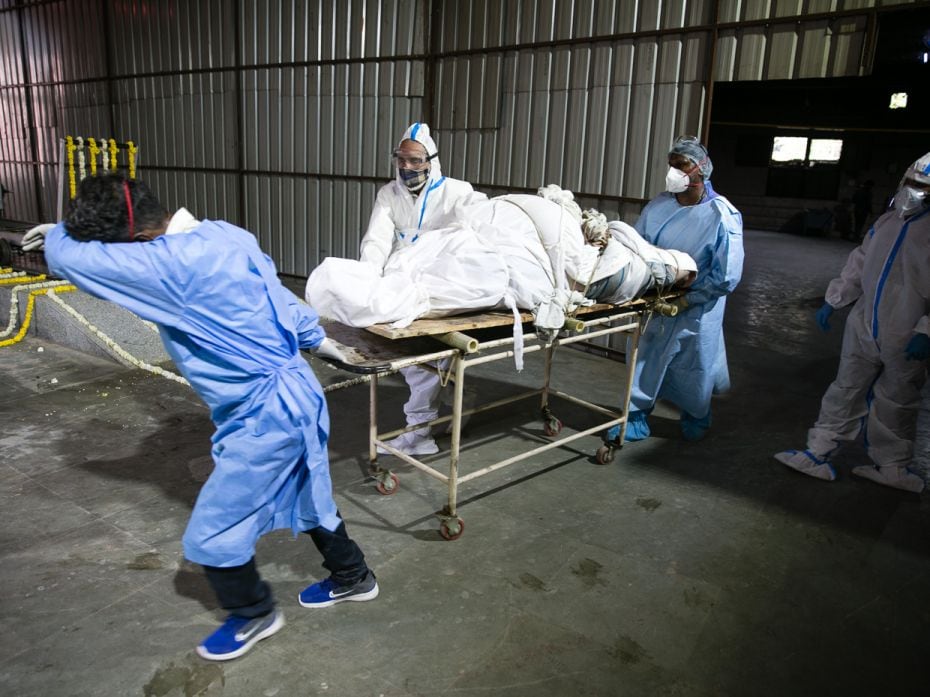
Image by : Madhu Kapparath
Rajesh Ujala, a contract health worker, is a familiar figure at the Nigambodh Ghat crematorium in New Delhi, the capital's largest, witnessing the ebb and crest of deaths that have passed from the mortuary through his hands since early last year. On Thursday afternoon, it took much more out of the team to haul a Covid-19 victim who was stricken with a rare case of obesity. Rajesh later said that the declaration of weight of the deceased at 200 kg was false, it was closer to 280.
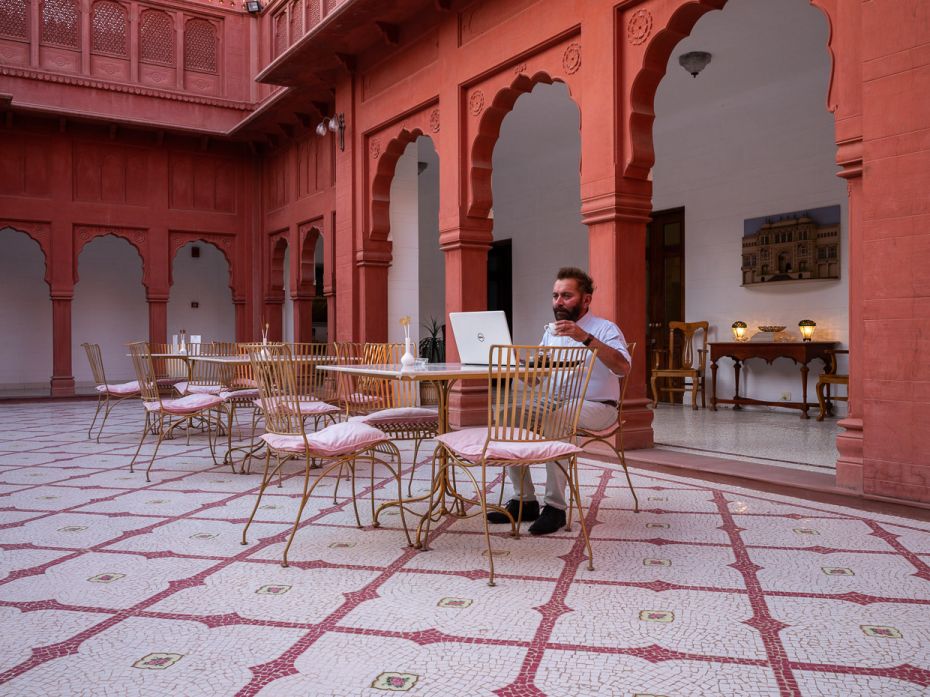
Image by : Amit Verma
On February 21 last year, Sunil Rampuria hosted a vibrant group of Italian tourists at Gaj Kesri, his elegant art hotel in Bikaner. Two weeks later, the Italians, journeying onward on the tourist circuit tested positive for the coronavirus, the early cases in the news that triggered contact tracing. The hotel went into a complete lockdown, with most of the Bengali staff leaving for home. When Gaj Kesri reopened in early November, sporadic guests from New Delhi-NCR and a few destination weddings kept them afloat. "But the situation now looks worse than last year," says Rampuria, "we live in the hope that there will be good times too".
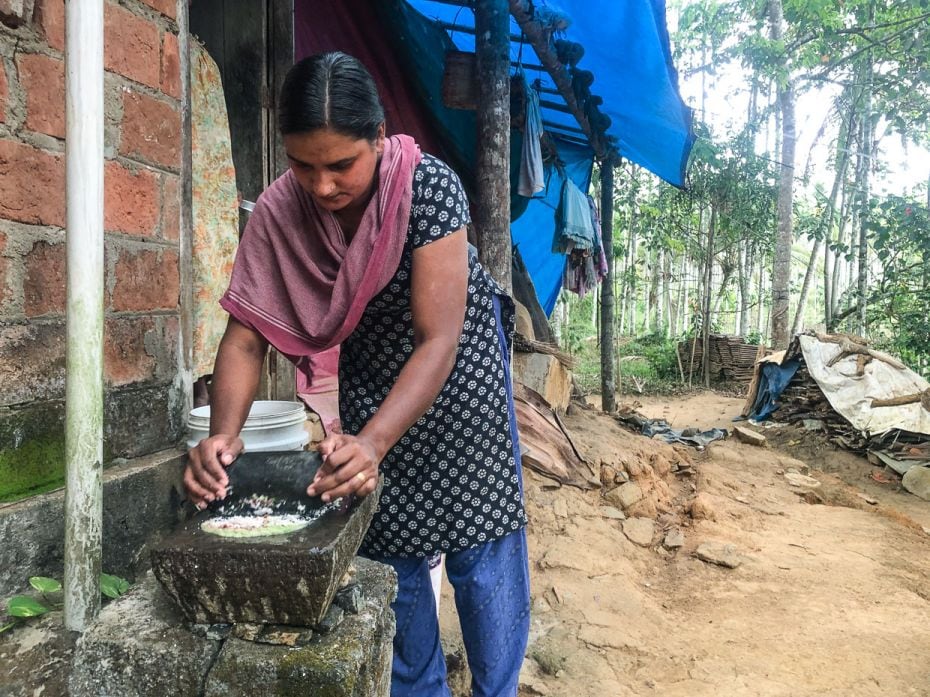
Image by : Mexy Xavier
For the 40-year-old housewife Shrijamol from Kaniyambetta, Wayanad, it is an everyday struggle managing the household and a school-going son on her mother’s meagre widowers’ pension. Separated from her husband for over three years now, she is hoping to benefit from the promise that political parties in Kerala made recently as an election plank: A monthly pension to housewives aged between 40-60. The need to recognise the burden of housework on women has been an issue for long, limited to women’s and progressive movements. The burden became even more striking during the lockdown, when families became homebound.
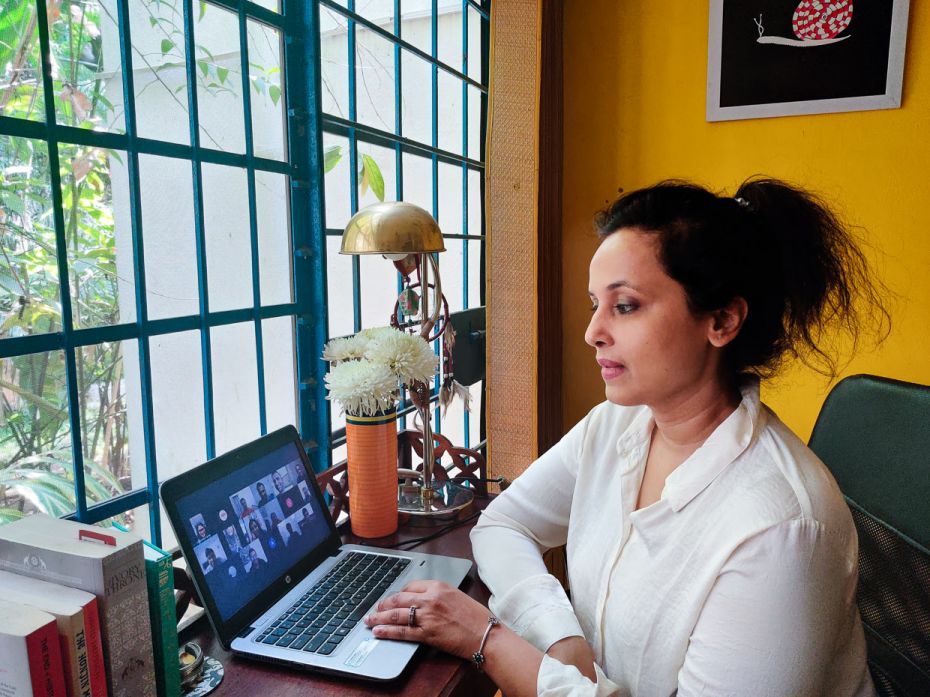
Image by : Sridhar
As the head of digital marketing at a reputed FMCG in Bengaluru, Dipti Sudhir deals with many video call meetings in a day, a norm for many in the work-from-home scenario that the pandemic ushered in last year. Dipti misses the energy of face-to-face meetings in the office environment, a sense of dynamism that rose from having a large team in a room, feeding on cues, setting off a chain-reaction of ideas. "The fear of closed environment will remain for some time and we really would have to think about how we’ll return collectively to an office as we knew it," says Dipti
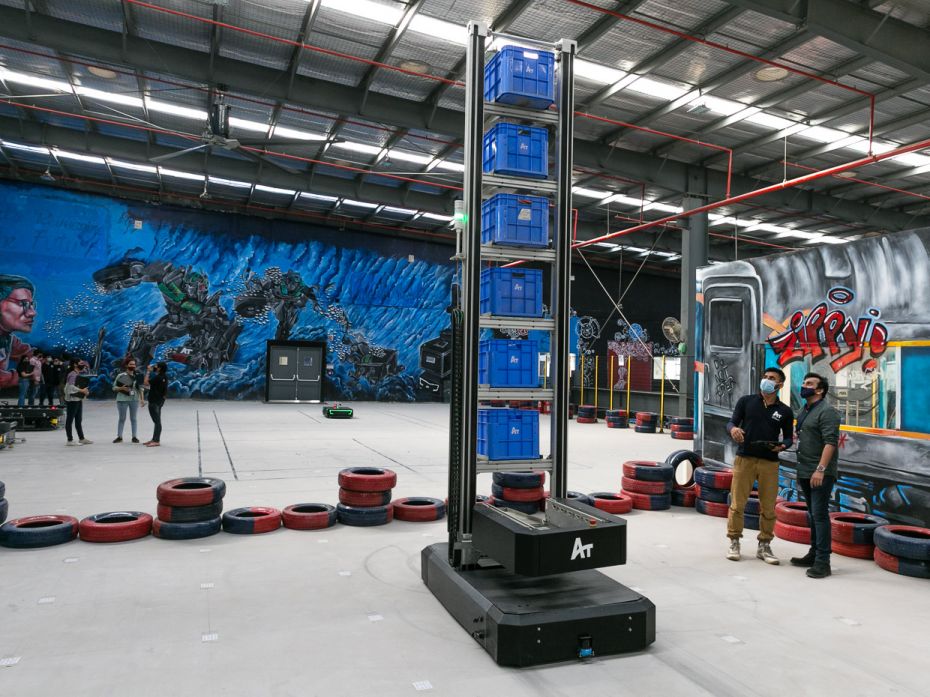
Image by : Madhu Kapparath
When the pandemic hit, Robotics Warehouse Automation company Addverb Technologies were in the midst of building an ambitious new facility called 'Bot valley' for manufacturing robots in Noida. Work had to be stalled as labourers on the construction site left for home. Spurred by the team’s enthusiasm, the founders took a call, and the team shifted in, even though the shop floor was in disarray and the machinery was partly installed. The facility was inaugurated on March 3, this year and houses 450+ engineers who can be found tinkering with robots in various stages of development, like Veloce, the robotic vehicle seen above.
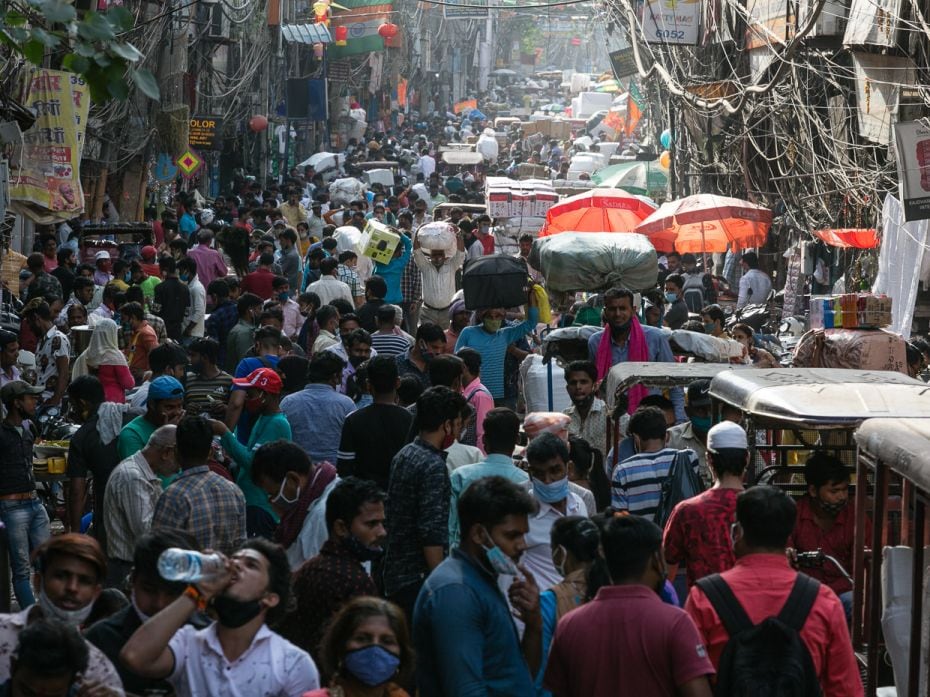
Image by : Madhu Kapparath
The Covid-19 situation may have rapidly deteriorated in New Delhi with the positivity rate at 32 percent, the highest-ever in the capital. Which would make this scene at Delhi’s Sadar Bazar—just before the weekend lockdown—an unbelievable sight. How would one explain away the easygoing attitude to social distancing and masking? Is it an ease born of knowing that there are no outsiders among us? Or is it a nonchalance from not knowing the value of our own lives?
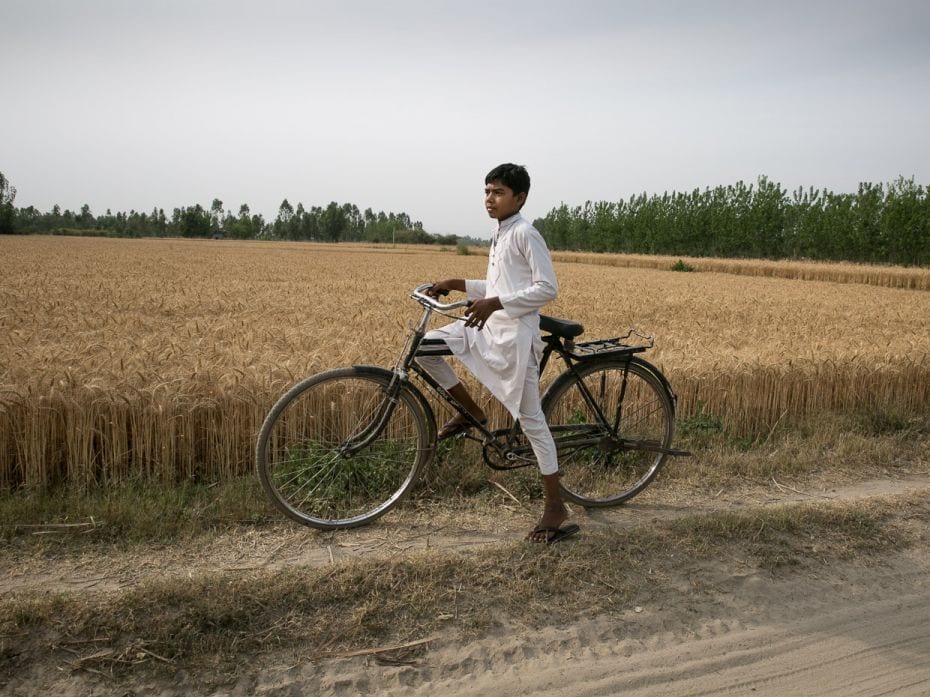
Image by : Madhu Kapparath
About sixty six kilometers from Haridwar—where the ongoing Kumbh Mela gathering of lakhs has been curtailed after many tested positive for the virus—is the agricultural heartland of Shahidwala Grunt. Zakir Ali is cycling the afternoon away along fields of wheat, ripe for harvest. In the sparsely populated village which has not had a single case of Covid-19 yet, Zakir’s school reopened after a week of holidays.
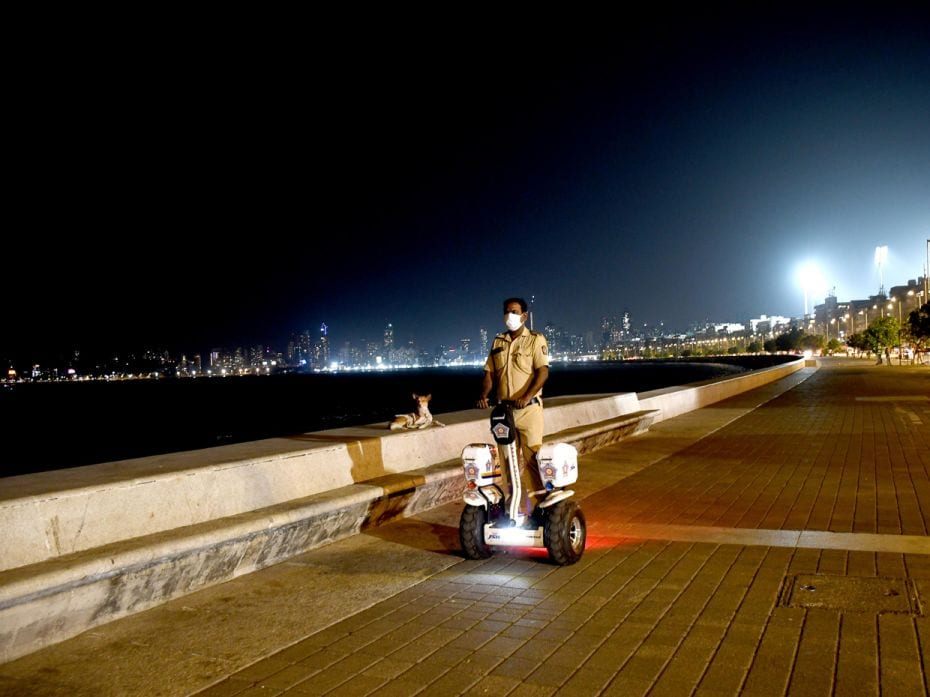
Image by : Deepak Turbhekar
A police officer patrols on a segway scooter on the deserted Marine Drive promenade during the night curfew following the rise in Covid-19 cases in Mumbai. The arc of this promenade is otherwise alive with strollers—especially women who find it safe—through the night, a showcase for the cosmopolitan character of this sprawling, impossibly crowded city.
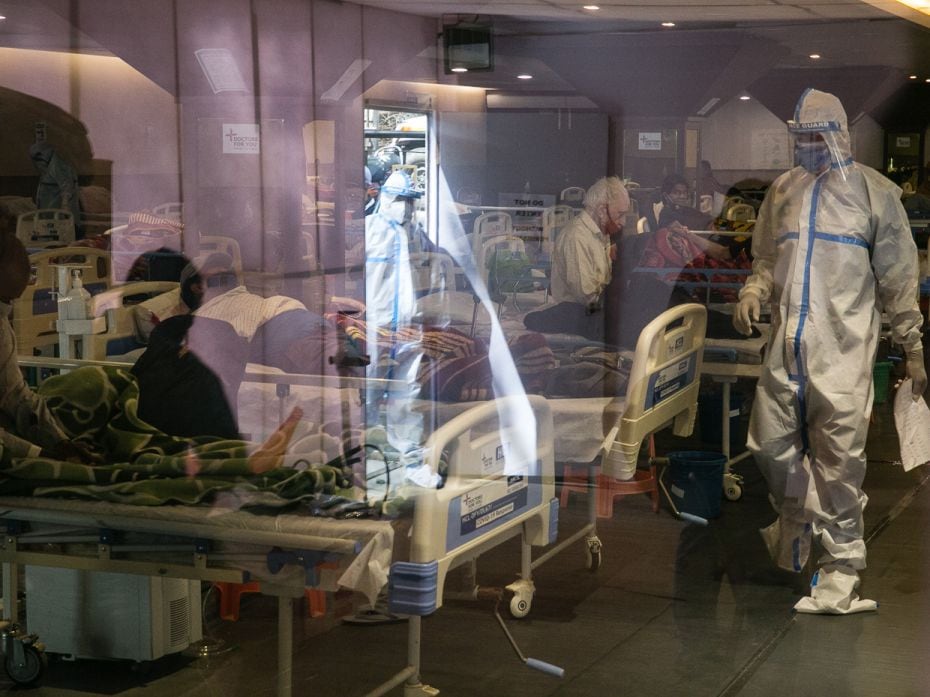
Image by : Madhu Kapparath
A banquet hall in New Delhi's Daryaganj has become the first facility to be converted into a Covid-19 care centre to cope with the surge of cases. Linked with the biggest Covid-19 state-run LNJP hospital in New Delhi, Shehnai Banquet Hall with 120 beds is being run by an NGO called Doctors For You. Among the early patients at the Hall was Sheetal Jain, a young lawyer who had been admitted after she tested positive with mild symptoms. "Never thought a day would come when I would end up at a wedding hall in these circumstances, in these clothes," she quipped.





